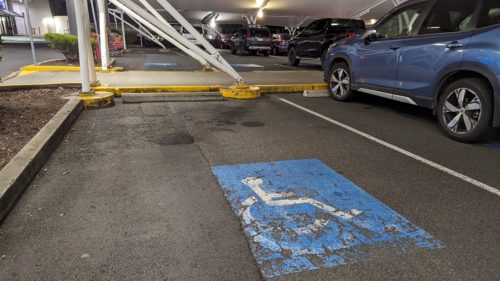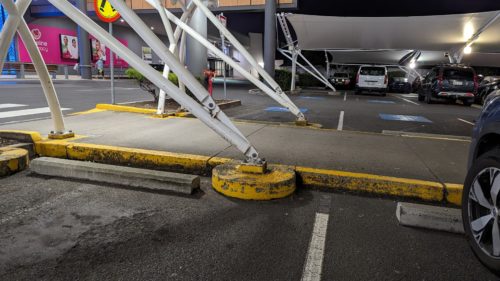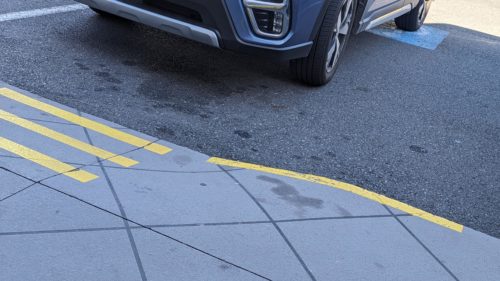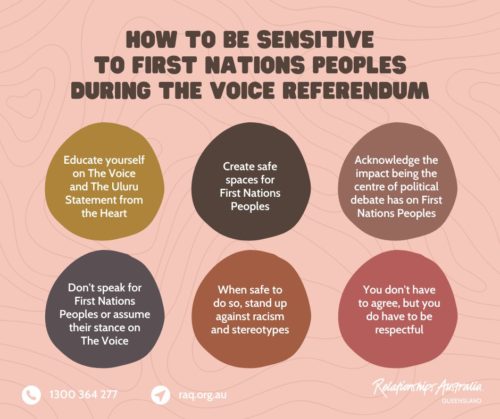Following some major foot surgery I’m currently getting around (with a great deal of help from my husband) in a wheelchair.
Mostly at home it’s okay, we have wide hallways – but I can’t make a drink or food and then move anywhere with it – I need my hands to wheel!
It’s hard enough getting in and out of the shower (I won’t mention the toilet situation).
I have a disabled parking permit – which is great – it gets us into a larger carpark, generally closer to where we want to be.
But I can’t tell you how many times in just a few weeks we’ve learned that this doesn’t mean easy access to the pavement or walkway.
You’d like to think there would be a ramp up? Nah, forget it.


Or if there is, it’s directly in front of the park, which makes it very tricky.

Okay, I will mention toilets here.
The space to move is limited even in a designated bathroom.
I have to approach from a certain angle to put my okay-ish foot down so I can pivot around, and that’s not easy.
Then there’s the toilet paper – or dispenser – situated so low I have to bend down even further than my seated position to reach it.
What’s that all about?
Of course I am lucky. This is a temporary situaton for me.
But it makes me wonder how on earth people with disabilties get by every day?
Think about the toilets on planes…
Okay, maybe too much about toilets, but it’s a basic necessity.
I’ve always liked to think people with disabilities have a say – or a voice – about these things.
Designers, builders, governments – anyone making these decisions – should have a consultative committee including people with disabilities who can advise on how much room is needed and what needs to be done etc.
According to the Australian Institue of Health and Welfare, more than four million people in Australia have disability, or around 18% of the population (2018).
You’d think 18% would deserve a voice on how they live wouldn’t you?
Well let’s put this another way…
Figures released this week from the Australian Electoral Commission show just 534,209 Indigenous Australians (3%) are enrolled to vote in the Voice referendum that will essentially decide if they have a say on things that will directly impact on their way of life.
THREE per cent.
Keeping in mind, that a small number of that three per cent are NOT in favour of the voice, makes it all the harder.
But it also means 97% of people enrolled to vote are non-indigenous and will make a decision that will not impact their own lives at all – but will have a huge bearing on the lives of others.
This might have begun about me discovering limitations imposed on me because I’m temporarily in a wheelchair.
I’d be shouting a lot louder and wanting to be heard and listened to if this was for the rest of my life!
I’d want a voice.
If you’re still undecided about the Voice referendum, do some research and be well informed before you make your final decision.
Importantly, and as Relationships Australia Queensland recently posted:
“No matter where you stand on The Voice, it’s important to support the safety and respect of our First Nations Peoples in the lead up to the referendum.”

There will always be people with small voices – let’s at least give them the right to be heard.
Ann🙏
